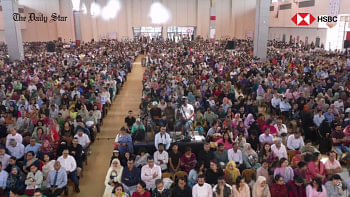Bangladesh betters its position
Bangladesh advanced by six spots to secure 130th position in a global survey covering 178 countries, showing the country's status in saving and improving the lives of mothers and children.
With the rise, Bangladesh has widened the gap with neighbouring India and Pakistan, but still lags behind Nepal (116th) and Sri Lanka (89th).
The Save the Children's 2014 Mother Index shows that Finland is the best place to be a mother for the second straight year and Somalia came in last.
The index is part of the agency's annual State of the World's Mothers report, now in its 15th edition, according to a statement issued yesterday by the Dhaka office of Save the Children.
The report shows that maternal and child mortality can be cut dramatically, even in the most challenging countries of the world, when efforts are made to improve services for mothers and children.
In Bangladesh, over the past 15 years maternal mortality decreased by 60 percent, child mortality was halved, average number of years of schooling increased by three years, and gross national per capita income as well as the number of women in parliament were more than doubled.
“This is a result of strong political will and willingness to invest in healthcare for children,” said Michael Foley, director of health and nutrition at Save the Children, Bangladesh.
However, Bangladesh has a long way to go in ending preventable child and maternal deaths, he added.
One out of every 24 children dies before their fifth birthday, 60 percent of those within the first 28 days of life, many from conditions which would have been easily treatable if they had access to a skilled health worker.
However, government funding for health as a percentage of the total budget has been decreasing over time, Foley mentioned.
This year's report focuses on mothers in humanitarian crises. For Bangladesh, it says that the country has always been vulnerable to cyclones and seasonal floods.
These losses lead to economic and other losses, which in turn can result in a spike in malnutrition, school dropouts, and inability to afford health services, said another official of Save the Children.
The report suggested ensuring that every mother and newborn living in crisis has access to high quality health care, and building resilience of health systems to minimise the damaging effects of crises on health.

 For all latest news, follow The Daily Star's Google News channel.
For all latest news, follow The Daily Star's Google News channel. 



Comments